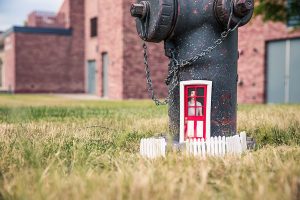Appraisal Requirements & Tips
Too often borrowers incur extra costs and have delays in the mortgage process because of preventable issues on the appraisal. Knowledge and preparation of appraisal requirements will help avoid many problems on the purchase or sale of a property. It even helps on a refinance as the same guidelines apply. Government loans like FHA, USDA, and VA are more strict on condition requirements than conventional Fannie Mae or Freddie Mac loans. Knowledge and effort saves money. Therefore we have used appraiser comments on previous appraisal reports to compile a detailed list for Realtors, buyers, and sellers to use.
Appraisal Requirements & Tips List

To reduce the likelihood of the appraiser re-inspecting the property, we suggest to review and/or repair the following:
- Make sure all areas of the property are available and unlocked. This includes the attic, crawl space, garage, and rooms.
- Make sure the utilities are working, including hot water and power
- Safety concerns such as exposed wires / missing outlet covers, curled up or ripped flooring (tripping hazard), loose handrails, or anything else considered a hazard should be corrected.
- Utilities not operating: hot water, power, permanent heat source
- No access to crawl space or attic
- Peeling paint on homes built prior to 1978 must be scraped & painted on FHA, USDA, VA loans (appraiser may require for conventional loans if appraiser feels it is required)
- Steps not permanently attached
- Hot water heater not working
- Extra dwellings such as a manufactured home on the property
- Water stains on the ceiling. There could be an active leak to check.
- Window casings, handrails, steps, or soffit with rotten wood
- No built-in appliances (stove for instance) on a government loan
- Missing shingles or excessive broken shingles
- Excessive water or moisture in crawl space
- Signs of termite damage (remove loose wood or cardboard from underneath the house as it promotes termites)
- Partially completed improvements or repairs
- Non-permitted additions
Easiest to Avoid Appraisal Issues
Believe it or not, the most common reasons for buyers paying an extra $100 – $150 are usually the easiest to avoid. The most common, yet avoidable issues, include the power, heat, and hot water not operating at inspection. Secondly, no access to the crawl space, attic, or other areas of the home are very common. Appraisers must check all areas of the home. Next, an appraiser will require a re-inspection for any inaccessible areas. Finally, if an appraiser is told the required repairs are completed but they really are not, then another inspection fee could be charged. So at least avoid these issues as a minimum, but try to correct the others if possible.
To learn more about appraisal requirements or how to avoid issues up-front on appraisals, contact our Team Move experts today
Team Move lends in areas such as Wilmington, Leland, Hampstead, Jacksonville, Camp Lejeune, Whiteville, Shallotte, Southport, Elizabethtown, Lumberton, Fort Bragg, Pope Air Force Base, Fayetteville, Rockingham, Raleigh, Garner, Smithfield, Clayton, Goldsboro, Charlotte, Greensboro, Winston-Salem, Durham, Chapel Hill, Burgaw, Castle Hayne, Holden Beach, Supply, Ocean Isle Beach, Sunset Beach, Hubert, Tabor City, Carolina Beach, Kure Beach, Laurinburg, Topsail Beach, North Topsail Beach, Surf City, Sneads Ferry, Richlands, Wrightsville Beach, New Bern, Oak Island, Saint James, Wallace, Sanford, Pittsboro, Apex, Cary, Raleigh, Holly Springs, Fuquay Varina, Siler City, Southern Pines, Aberdeen, Pinehurst, Whispering Pines, Vass, Spring Lake, Fayetteville, Lillington, Hope Mills, Dunn, Angier, Smithfield, as well as the rest of NC. North Myrtle Beach, Myrtle Beach, Conway, Loris, Little River, Longs, as well as the rest of South Carolina and Virginia.